Big banks are still attracting the largest fines from financial regulators. Similar to previous years, investment banking globally was the recipient of the lion’s share of penalty amounts handed out in 2017, with fines totaling US$20.6 billion. We can safely predict this trend will continue, with investment banks leading the penalty amounts for the first half of 2018 at US$4 billion.
In common with every year bar one since 2013, it is the securities-issuing business of those banks that is the primary target. The exception was 2015, when it was the FX markets service line that bore the brunt of penalty amounts. (That sector has also been among the top recipients of fines in four out of the last five years.) In fact, the investment banks have been particularly heavily hit by regulators across their fixed income markets, sales and trading and treasury services.
Mis-selling and residual benchmark manipulation cases are still making themselves felt.
New frontiers
However, that does not mean other sectors can relax.
For a start, even looking simply at the aggregate of the fines, several other sectors globally are seeing fine totals regularly exceeding US$1 billion. A steady flow of big bribery cases in the past few years, not least in 2017, has elevated the prominence of the non-financial corporate sector, which ranked second only to investment banking in the last two years. Also included are consumer banks, as well as asset and wealth managers, which have each respectively paid out over US$18.7 billion and over US$8.3 billion between 2013-17.
Added to that, regulators are proving unafraid of expanding their remit to cover sectors that have previously received little attention. Both the U.S. Justice Department and European Securities and Markets Authority levied big fines (or agreed settlements) with ratings agencies in the last year, for example – for mortgage ratings in the run up to 2008 financial crisis in the case of the former, and transparency failings for the latter.
Added to that, we are seeing increased enforcement against unlicensed activity. An expanding regulatory perimeter is resulting in greater oversight of businesses such as consumer credit firms (including payday lenders)1 and claims companies (particularly around PPI)2 in the UK – both sectors that had been very lightly or completely unregulated in the past.
Size isn’t everything
The willingness of regulators to tackle new sectors could be important, as fintech businesses continue to disrupt financial services markets – and particularly if and when the big technology players make serious moves into this space. It should mean that simply identifying a business as a technology firm rather than a financial services company is unlikely to get participants a free pass. Regulators will insist on a level playing field for everyone to protect consumers.
That should please the likes of asset managers that have feared unfair competition. But they should not take too much comfort from regulators’ expanding remit, nor the apparent focus on investment banks when it comes to fines.
As said previously in this report, the level of fines simply reflects the organizations involved: The largest organizations can expect more significant penalties. That does not mean others won’t be sanctioned.
In fact, asset and wealth management remain a key focus for regulators. Look at the number, rather than cumulative value, of fines across regulators and this becomes clear. Both sectors have been among the most frequently sanctioned by regulators in both 2017 and 2018 (to date), and one or other is among the top five in every year since 2013, other than 2014.
If asset managers expect an easy time, they are likely to be disappointed.
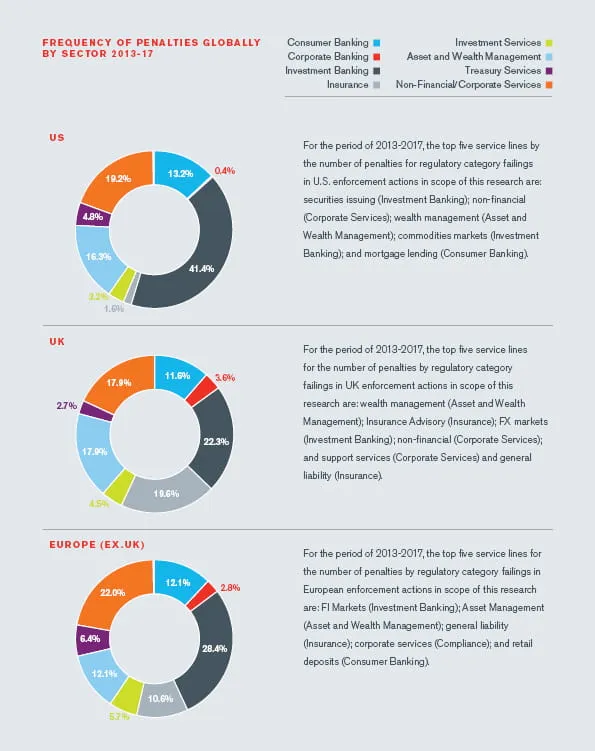
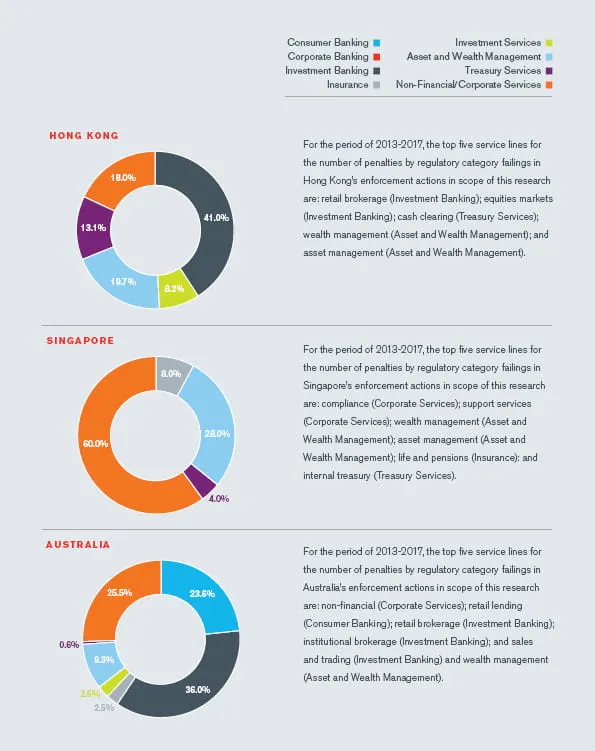
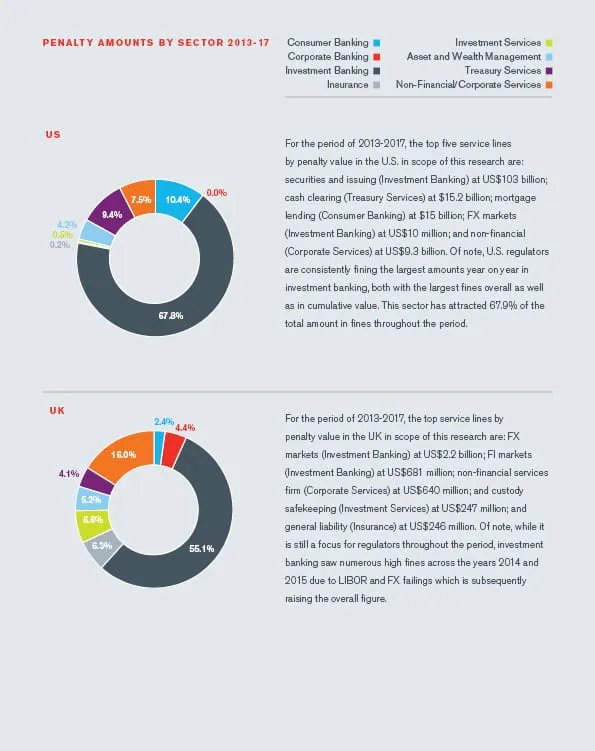
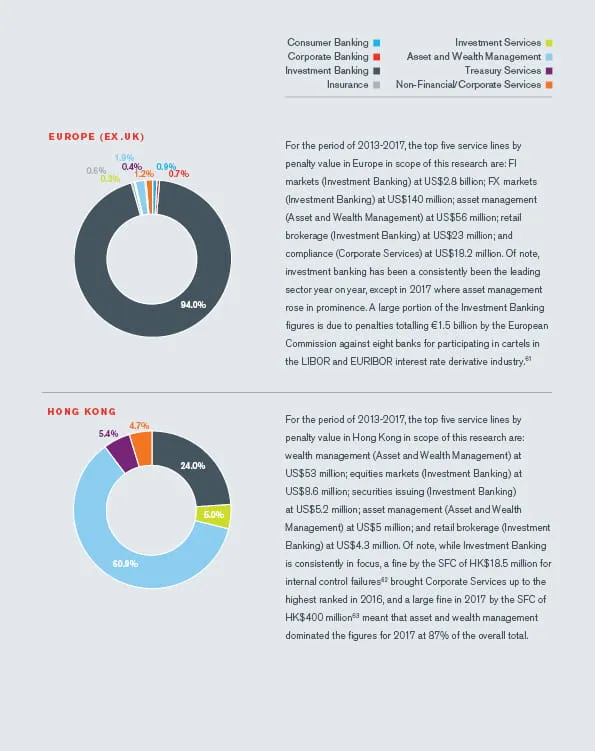
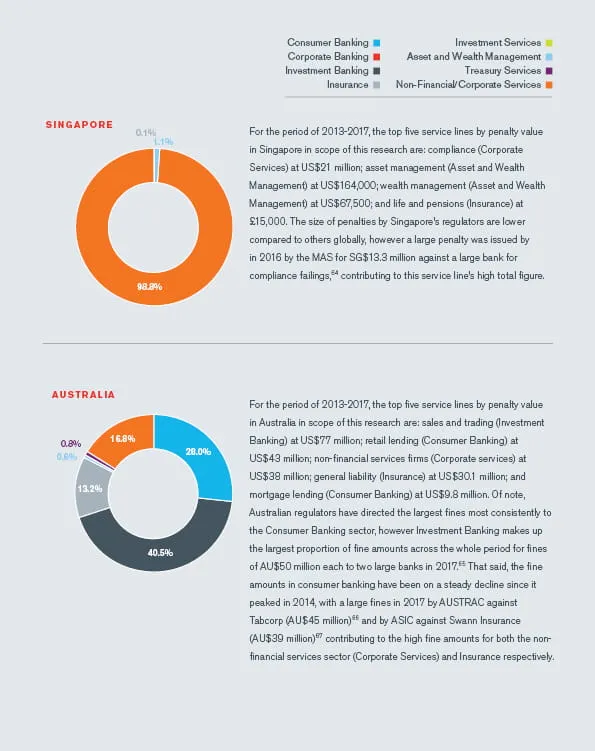
Sources:
1 https://www.fca.org.uk/news/press-releases/agenda-priorities-consumer-credit
2 https://www.fca.org.uk/publications/policy-statements/ps17-3-payment-protection-insurance-complaints





